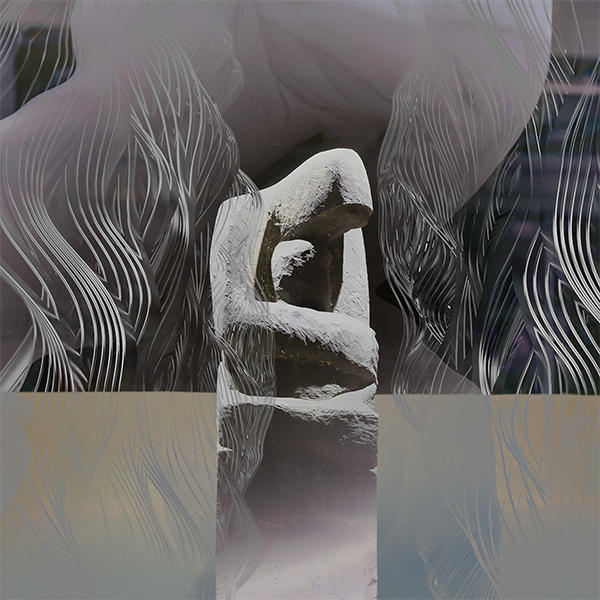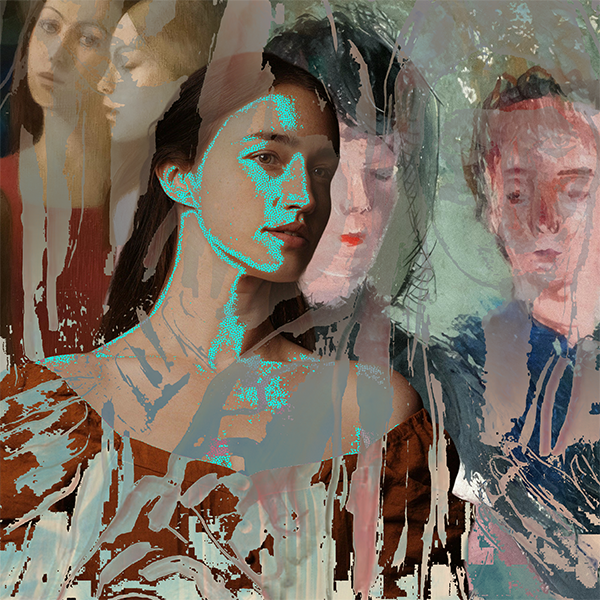We Are Feminine (But We Won’t Fit In Your Box)
She is feminine.
It’s only 5:30 a.m. and her 7-month-old baby is already giggling through the baby monitor. “It can’t be morning,” Jenny whispers to herself. Her eyes burn and her bones ache. Between frequent late night nursing sessions with the infant, caring for the 2 and 4 year old, keeping up with laundry, cooking, and cleaning, Jenny is one tired mama. But every bit of it is worth it to her. She can’t imagine living life any differently. Just the other morning she walked past a mirror and noticed her own reflection and her infant strapped to her body in a baby carrier. As she stopped to observe the reflection in the mirror, she noticed the dark bags underneath her eyes. The late night feedings were really taking a toll on her body. But then, as she glanced down to see the reflection of her precious baby, she had a moment. “I am whom I’ve always wanted to be, I’m doing exactly what I’ve always wanted to do,” she whispered softly. Being a mom and a wife is exactly as she imagined her life would be. Seeing smiling babies in the morning and seeing her husband’s face when he walks in from the door from work to a table full of food is her ministry and her joy.
She is feminine.
The 5:30 a.m. alarm blares as she lies there trying to remember exactly what day it is. It’s Thursday and today is the day that Fakelia has been preparing for the last 3 months. Will she be able to close the deal? Will the customer like her PowerPoint presentation? Will her boss be proud of all of her hard work? Her boss put her on this project for her bold and assertive qualities. She is quick on her feet, outspoken, and wins almost every customer’s affections that spends any amount of time with her. Her nickname at work is ferocious Fakelia for a reason.
She browses her closet for her favorite blue pantsuit as her tiny two-year-old stumbles into the room with pillow lines still on his cheeks and disheveled hair. As she stoops down to scoop him up in her arms, her husband, John, rolls over and says, “Good morning, Babes! Jacob, what do you want for breakfast today? We have a big day planned full of errands, laundry, grocery shopping, and play-dates. You and I are going to have a fun day while your Mommy knocks it out of the park at work today.” Fakelia takes a deep breath and smiles at her husband, “I’m so thankful for you, hon. It is such a blessing that you are able to stay home with Jacob. You two will have a great day.”
She is feminine.
Christy sits on the edge of the pew as the last worship song comes to a close. With her head down, hands folded, she whispers one last prayer before she preaches before her beloved congregation, “Lord, speak through me and to my congregation this morning. May your name be lifted high.” Christy pulls her golden curls back into a pony-tale before walking on to the platform. Nothing is more annoying than her twirly curls falling in front of her eyes mid-sermon. She looks to her left to see her best friend, Amanda, to her right. She and Amanda share a special bond. Their deepest secrets, insecurities, hopes, and dreams have been shared with one another. As a single woman and a pastor, Christy treasures the intimate bond the two of them have. Most weekends Christy reads through her sermon to Amanda as Amanda offers constructive criticism and encouragement. Ministry would not be the same without Amanda. “You’ve got this, Rev.”, whispers Amanda as Christy walks to the platform.
She is feminine.
Maria stands behind the cashiers counter at the local doughnut shop. It’s been a long day; she’s been on our feet for at least 12 hours. This is her second job – she spent the first half of the day waiting tables at the old town diner. Although her job and income situation isn’t ideal, she has no choice. She is a single mother of 4 and does whatever she can to put food on the table. She is tired and ragged, but she will do anything for her kids. Sometimes Maria wishes she wasn’t the only parent in the house, but she has an incredible support system in her local church. She will often come home to a fridge full of food not knowing how it got there or who put it there, and her children have many “moms and dads” as they all pitch in to raise the kids.
We are feminine and we are in Christ.
We have short hair and we have long hair; dirt is under our fingernails from toiling under the sun just to make a living and our fingernails are nicely manicured with pink nail polish; we enjoy high tea and we sometimes enjoy a beer at the pub; we stay at home with the children, care for our husbands, and support their careers, but we also choose wear the blue pant suits and run corporations. We wear yoga pants, leggings, mom jeans, cargo shorts, long skirts, and daisy dukes. You see, our femininity is not rooted in ideology or cultural norms; our femininity is rooted in our humanity, which is firmly rooted in the humanity of Christ. It is the life, death, resurrection, and ascension of King Jesus that informs the theology of our bodies. Our bodies sometimes bear children and they sometimes don’t, but childbearing isn’t our identity; instead, our bodies and identities are ordered in the saving and transforming activity of the Triune God.
Our embodied lives are firmly rooted in Jesus Christ as we are made holy by the empowering presence of the Spirit. It is the Spirit that informs our decisions in the office place, at home, behind a cashier’s counter, and in our relationships; it is by the Spirit that we are shaped into the women we were created to be – Biblical women, holy women, and daughters of the resurrection. Eschatology and resurrection informs our identities, not creation or brokenness.[1] We are beautiful, strong, courageous, quiet, submissive, outspoken, tender, fierce and holy. It is precisely as Beth Felker Jones writes, “When death is finally no more, we will be shaped entirely by the love embodied in Jesus Christ…our bodies are for praise, praise of the one who is victor over death, who will shape us into witnesses to beauty, to goodness, to holiness, and to peace.”[2]
We are beautiful, strong, courageous, quiet, submissive, outspoken, tender, fierce & holy. Share on XWe are feminine and we are in Christ. When we gather together every week for prayer, praise, and Eucharist, the empowering presence of the Spirit is among us and that is when we shine. The Apostle Paul says in 1 Corinthians 14:12, “So it is with you. Since you are eager for gifts of the Spirit, try to excel in those that build up the church.” These gifts include teaching, admonishing, prophesying, knowledge, exhortation, healing, miracles, and guidance. See 1 Corinthians 12:4–11, for example:
There are different kinds of gifts, but the same Spirit distributes them. There are different kinds of service, but the same Lord. There are different kinds of working, but in all of them and in everyone it is the same God at work. Now to each one the manifestation of the Spirit is given for the common good. To one there is given through the Spirit a message of wisdom, to another a message of knowledge by means of the same Spirit, to another faith by the same Spirit, to another gifts of healing by that one Spirit, to another miraculous powers, to another prophecy, to another distinguishing between spirits, to another speaking in different kinds of tongues, and to still another the interpretation of tongues. All these are the work of one and the same Spirit, and he distributes them to each one, just as he determines.
We have gifts to teach, preach, prophesy, serve, lead, and build.[3] We are church planters, we are kitchen ladies, and we are worship leaders. We are full of wisdom and we are also new Christians. Many have tried to box us in or tell us who we should be, but when we look to Christ, we see cruciformity, love, grace, courage, and presence. Sure, try to box us in, but our femininity can’t fit in your box. It is and will always be firmly rooted in the humanity of Jesus.
We are feminine, we are in Christ, and we are diverse.[4]
[Photo: Photo: Matt Hoffman, Creative Commons 4.0 via#YouRadiate]
[1] Scot McKnight expands on the cross and resurrection defining manhood and womanhood, not Genesis 1-3 on his blog. “Targeting Gender” right here.
[2] Beth Felker Jones, Marks of His Wounds: Gender Politics and Bodily Resurrection (New York: Oxford University Press, USA, 2007), 114.
[3] Excellent post over at the Junia Project on “Gender Roles vs. Spiritual Roles in the Body of Christ” right here.
[4] For more on this subject, I highly recommend the following books: Dr. Jackie Roese, Lime Green (Dallas, TX: HIS Publishing Group, 2015).; Carolyn Custis James, Malestrom: Manhood Swept Into the Currents of a Changing World (Grand Rapids, MI: Zondervan, 2015).



